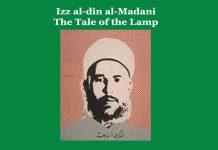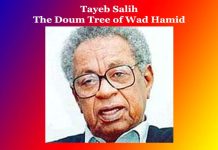The Use of Dialogue in Premchand Deliverance
The Use of Dialogue in Premchand Deliverance
The Use of Dialogue in Premchand Deliverance
‘Dialogue’ refers to the conversation between two or more people. The use of dialogue imparts dramatic quality to a story. Dialogue should be used sparingly and carefully with the intention that through dialogue the plot may get evolved and the characters may get revealed their true passion, emotion, motive, feeling etc. Dialogue should be in keeping with the personality of the speakers and suitable for the situation. For instance, a king should behave and talk like a king, a maidservant like a maidservant, a ruffian like a ruffian, a beggar like a beggar, a clergyman like a clergyman. In brief, to say, dialogues should be realistic but in using dialogue, the storyteller should take care that the speech may not go, in any way, beyond the purpose of the author. For example, in a real-life situation, people happen to make quarrel where the people involved utter many unnecessary words or repetitions of the same words and phrases. The storyteller must eschew them all and employ only those speeches which serve the purpose of the evolution of the plot and the purpose of unfolding the inner motives, passion, feeling etc. of the characters.
Premchand is a master of creating dialogue. In the short story entitled ‘Deliverance’, he used dialogue to evolve the story along with divulging the inner passion, emotion, motive, and feelings of his characters.
In the first section of the story, ‘Deliverance’ the author introduces Dukhi the principal character of the story and his wife. The author employs lots of dialogues in their mouths through which their inner personalities and motives of them have been revealed thoroughly.
Dukhi and his wife are physically as well as mentally enslaved. They are as naive and simple as the other lower castes of people. They have great regard for the Brahmins and they become anxious about how they would receive the Pandit Ghasiram. They have good faith in the Pandit that the Pandit has the power to fix an auspicious day for their daughter’s betrothal. Dukhi is meticulous about the Pandit as he says, ”.. we have to think about what he’s going to sit on.”
Then his wife says, ”Can’t we find a cot somewhere? You could borrow one from the village headman’s wife.”
As there is no hope of borrowing a cot, Dukhi suggests to his wife, ”You’d better wash your own cot and set it out — in this hot weather it ought to be dry by the time he comes.”
But Jhuriya, the wife of Dukhi is aware of how stickler the Pandit is. She replies, ”He won’t sit on our cot. You know what a stickler he is about religion and doing things according to the rule.” Thus through these dialogues, the simplicity, honesty and caring personality of Dukhi and his wife are revealed.
Secondly, the Pandit Ghasiram and his wife’s dishonesty, hypocrisy, cruelty, and sense of class distinction are revealed through their dialogues.
The Pandit spends lots of time decorating himself. But when he is asked to go to the house of Dukhi to fix an auspicious date for her daughter’s betrothal, he says instantly, ”I have no time today. But still, I’ll manage to come towards evening.”
The Pandit is selfish and devoid of common sense. It is revealed when he says to Dukhi seeing him not splitting the woods, ”… you have not even made a dent in it. So if you don’t find an auspicious day for your daughter’s marriage, don’t blame me.” Gashiram is an opportunist as he takes the avail of Dukhi and orders him, ”Get up just three more strokes. I want it in small bits.” As is the Pandit so is his wife Panditayin and even she is more inhuman, and harsh to the lower classes of people. When Dukhi went inside the house of the Pandit, the Panditayin said, ”Tell that good for nothing fellow to get out or I’ll scorch his face with a firebrand.” Again when the Pandit asks her to give some food to Dukhi she says, ”Let’s forget the whole thing. I’m not going to kill myself cooking in weather like this.”
Another minor character in the story is Chukhuri. He is a friend of Dukhi. He is something critical and bold. He cares about the Brahmans less as is revealed when he says to Dukhi, ”Have you had anything to eat? Or are they just making you work without feeding you? Why don’t you ask them for something?” He even dares to criticize the Pandit by saying, ”Whack it all you like but you won’t split it, You’re better killing yourself.”
Thus the author has employed dialogues in the mouth of his characters and succeeded in evolving the story and revealing his characters. 0 0 0.
The Use of Dialogue in Premchand Deliverance
N. B. This article entitled ‘Premchand’s ‘Deliverance’ An Analytical Study’ originally belongs to the book ‘World Short Story Criticism‘ by Menonim Menonimus. The Use of Dialogue in Premchand Deliverance
Books of Literary Criticism by M. Menonimus:
- World Short Story Criticism
- World Poetry Criticism
- World Drama Criticism
- World Novel Criticism
- World Essay Criticism
- Indian English Poetry Criticism
- Indian English Poets and Poetry Chief Features
- Emily Dickinson’s Poetry-A Thematic Study
- Walt Whitman’s Poetry-A Thematic Study
- Critical Essays on English Poetry
- Tawfiq al-Hakim’s Novel: Return of the Spirit-An Analytical Study
- Tawfiq al-Hakim’s Novel: ‘Yawmiyyat Naib Fil Arayaf’-An Analytical Study
- Analytical Studies of Some Arabic Short Stories
- A Brief History of Arabic Literature: Pre-Islamic Period …
Books on Linguistics by M. Menonimus:
- A Brief History of the English Language
- Essays on Linguistics
- My Imageries
- Felicitous Expression: Some Examples
- Learners’ English Dictionary
Related Searches:











